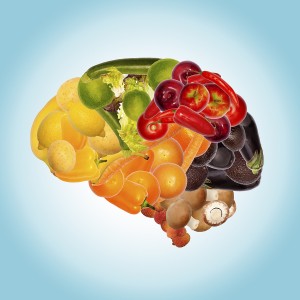 Exam time is a stressful and challenging time regardless of what educational institute you are in. As a result, healthy lifestyle and eating habits often “go down the drain”. Over the many exam periods I have had to endure, I have developed tips and tricks to help me stay “above water” when it came to my health and my needs. In addition to studying, it is my hope that developing these healthy habits will help you not only ace your exams, but survive the exam season.
Exam time is a stressful and challenging time regardless of what educational institute you are in. As a result, healthy lifestyle and eating habits often “go down the drain”. Over the many exam periods I have had to endure, I have developed tips and tricks to help me stay “above water” when it came to my health and my needs. In addition to studying, it is my hope that developing these healthy habits will help you not only ace your exams, but survive the exam season.
Prepare healthy snacks in advance
Having snacks already made such as cut up vegetables and fruit will help you to avoid the temptation of going for “easy” snack food such as chips, candy, pastries, etc.
Prepare meals in advance
Similar to the point above, cooking meals in advance helps to avoid the temptation to eat out and grab that big mac as opposed to a salad. Often, I cook my meals on weekends in preparation for the week. This way, I know I have a quick and healthier choice to rely on.
Green tea
Green tea has a constituent in it called “theanine”. Theanine helps you to be able to focus without the jittery feeling that coffee can often give. As a result, green tea is great for those long study sessions.
Chamomile Tea (or a relaxing tea) before bed
Not only will this help you to sleep better, but it is also a therapeutic action that helps prepare your mind and body for bed. Which leads to my next point. . .
Sleep
Sleep is important not only for your health but also for your memory prior to exams. Research has shown that getting the 8 hours of sleep before an exam is more beneficial than “pulling an all-nighter”. So do your body and you a favor and sleep.
It is okay to take breaks
Giving yourself permission to take breaks is important. It helps change the way you are thinking and allows your brain to function better and be more productive.
Exercise
Exercise has many health benefits including helping our brains to function effectively, improving energy, and improving mood, all of which are important during exam time. As little as 20 minutes per day has shown to be enough to experience health benefits from exercise. Even if you go for a short walking around your residence or block for a break would be enough to help you refocus and gain a different perspective on your studying.
Deep breathing prior to exams
Finally, breathing is important. Deep breathing prior to exams can help calm you and focus you on what needs to be accomplished. With this in mind, remember to keep things in perspective by asking yourself, is this really a big deal? What would happen if I did fail (realistically)? Often putting things into perspective helps us when we are facing these challenging times.
Have you benefitted from reading this blog? Know someone that would benefit as well? Share, Like, Comment, or Tweet this article, and let me know what you think.
Some of the information provided above may not be appropriate for everyone, please consult with your doctor before trying any of the above. If you are interested in Naturopathic Medicine and wanting a different approach to your health care needs, contact Dr. Elisha Cook ND by calling 519-537-7058 and book your appointment today!



